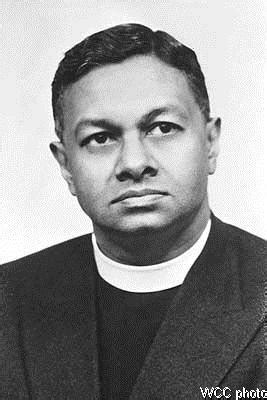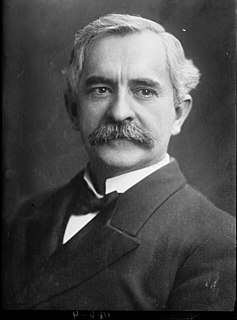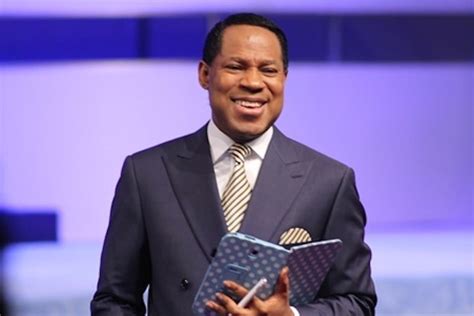A Quote by Daniel Thambyrajah Niles
The chief difficulty is that God demands of us that we live by faith: faith in God, God's sovereignty over the future, God's sufficiency for the present; while, on the other hand, the various other gods whom we can serve appeal to us in terms of the things which we can see and the forces which we can calculate. The choice between the life of faith and the life of sight is a choice between a God whom only faith can apprehend and gods whom one has only to see to understand.
Related Quotes
There are two gods. The god our teachers teach us about, and the God who teaches us. The god about whom people usually talk, and the God who talks to us. The god we learn to fear, and the God who speaks to us of mercy. The god who is somewhere up on high, and the God who is here in our daily lives. The god who demands punishment, and the God who forgives us our trespasses. The god who threatens us with the torments of Hell, and the God who shows us the true path.
There are two gods. A god who casts us off because of our sins, and a God who calls to us with His love.
Faith, faith, faith in ourselves, faith, faith in God, this is the secret of greatness.If you have faith in all the three hundred and thirty millions of your mythological Gods, and in all the Gods which foreigners have now and again introduced into your midst, and still have no faith in yourselves, there is no salvation for you.
The celebration of Lent, in the context of the Year of Faith, offers us a valuable opportunity to meditate on the relationship between faith and charity: between believing in God - the God of Jesus Christ - and love, which is the fruit of the Holy Spirit and which guides us on the path of devotion to God and others.
The fundamental idea which defines a human being as a Muslim is the declaration of faith: that there is a creator, whom we call God - or Allah, in Arabic - and that the creator is one and single. And we declare this faith by the declaration of faith, where we... bear witness that there is no God but God.
It's a weak faith that only serves God in times of blessing. The book of Job teaches us that true faith, genuine faith, great faith is revealed only when we serve and trust God in the hard times, the times of suffering, loss, and opposition. That's the kind of faith that makes the world sit up and take notice.
Do we not see God at work in our circumstances? Dark times are allowed and come to us through the sovreignty of God. Are we prepared to let God do what He wants with us? Are we prepared to be separated from the outward, evident blessings of God? Until Jesus Christ is truly our Lord, we each have goals of our own which we serve. Our faith is real, but it is not yet permanent. And God is never in a hurry. If we are willing to wait, we will see God pointing out that we have been interested only in his blessings, instead of God Himself.
It is an item of faith that we are children of God; there is plenty of experience in us against it. The faith that surmounts this evidence and is able to warm itself at the fire of God's love, instead of having to steal love and self-acceptance from other sources, is actually the root of holiness: It is a fatal mistake to think of holiness as a possession which we have distinct from our faith... Faith is the very highest form of our dependence on God.
Yet, after all, faith is not our righteousness. It is accounted to us in order to righteousness (Rom 4:5, GREEK), but not as righteousness; for in that case it would be a work like any other doing of man, and as such would be incompatible with the righteousness of the Son of God; the righteousness which is by faith. Faith connects us with the righteousness, and is therefore totally distinct from it. To confound the one with the other is to subvert the whole gospel of the grace of God. Our act of faith must ever be a separate thing from that which we believe.
The best definition I can find of faith is the dependence upon the veracity of another. The Bible definition in the 11th chapter of Hebrews is, 'Faith is the substance of things hoped for, the evidence of things not seen.' In other words, faith says amen to everything that God says. Faith takes God without any ifs, If God says it, Faith says I believe it; Faith says amen to it.
We need a quickening of faith; faith in the power of the God of Pentecost to convict and convert three thousand in a day. Faith, not in a process of culture by which we hope to train children into a state of salvation, but faith in the mighty God who can quicken a dead soul into life in a moment; faith in moral and spiritual revolution rather than evolution.
Love makes us instinctively reach out to God and other people. Lust, on the other hand, is anything but godly and celebrates self-indulgence. Love comes with open hands and open heart; lust comes with only an open appetite. These are just some of the reasons that prostituting the true meaning of love-either with imagination or another person-is so destructive. It destroys that which is second only to our faith in God-namely, faith in those we love. It shakes the pillars of trust upon which present-or future-love is built, and it takes a long time to rebuild that trust when it is lost.
It is certain that those who have the living faith in their hearts see at once that all existence is none other than the work of the God whom they adore. But for those in whom this light is extinguished, [if we were to show them our proofs of the existence of God] nothing is more calculated to arouse their contempt. . . .
There is a virtuous fear, which is the effect of faith; and there is a vicious fear, which is the product of doubt. The former leads to hope, as relying on God, in whom we believe; the latter inclines to despair, as not relying on God, in whom we do not believe. Persons of the one character fear to lose God; persons of the other character fear to find Him.































